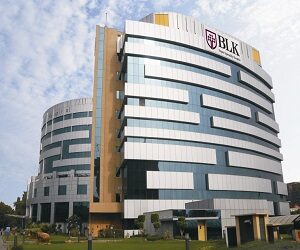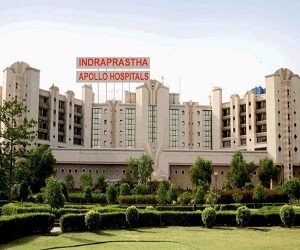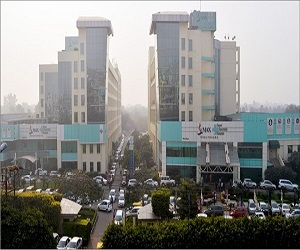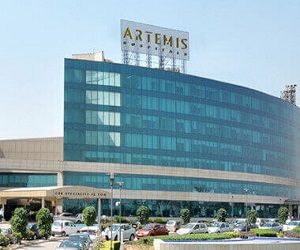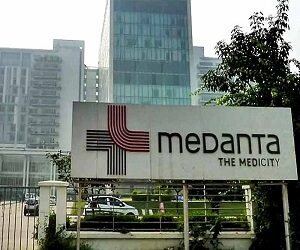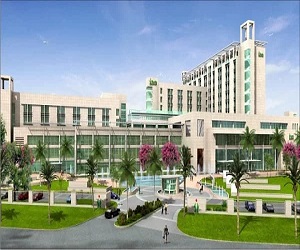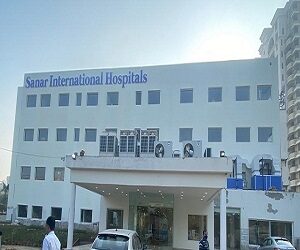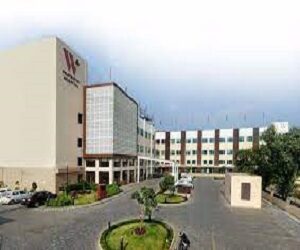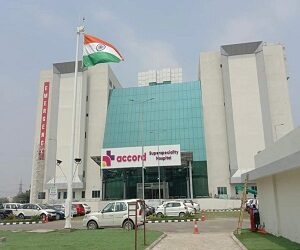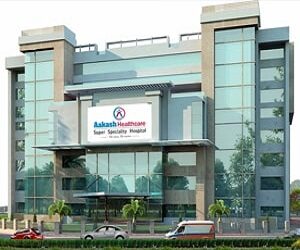Kidney Treatment in India
What is a Kidney?
The kidneys play key roles in body function, not only by filtering the blood and getting rid of waste products, but also by balancing levels of electrolyte levels in the body, controlling blood pressure, and stimulating the production of red blood cells. The kidneys are located in the abdomen toward the back, normally one on each side of the spine. They get their blood supply through the renal arteries directly from the aorta and send blood back to the heart via the renal veins to the vena cava. (The term “renal” is derived from the Latin name for kidney.)
Types of Kidney Diseases:
The term “kidney disease” can refer to any type of condition that greatly reduces the functioning of the kidneys. Some forms of kidney disease are acute, which means that the damage is sudden and symptoms reveal themselves very quickly. Chronic kidney disease means that the decline in kidney function is slow and progressive. There are several different types of kidney disease, some of which are worse than others-
Get Opinion From Doctor
- Nephritis – kidney disease due to inflammation
- Nephropathy – due to non-inflammatory causes
- Hyperfiltration (Stage 1) – increased filtering without microalbuminuria
- Mild microalbuminuria (Stage 2) – early stages of microalbuminuria
- Clinical albuminuria (Stage 3) – microalbuminuria in larger amounts
- Advanced clinical nephropathy (Stage 4)
- Kidney failure (Stage 5)
- Chronic renal insufficiency
- Early kidney failure
- Diabetic nephropathy
- Kidney Cancer
Symptoms of Kidney Diseases:
Kidneys play a critical role in keeping the body healthy by cleaning and processing the blood. Working together, the 2 million nephrons filter and process 3-4 liters of blood approximately every 5 minutes, 24 hours a day, 7 days a week.It is important to be aware of any problems you may be having with your kidneys and get treatment quickly. Some common symptoms and signs of kidney problems are:
- Swelling around the face, eyes, feet and ankles
- Pain or a burning sensation during urination
- Fever
- Need to urinate more frequently
- Problems controlling urination
- Blood in the urine
Causes of Kidney Diseases:
Kidney disease can be caused by a number of conditions, though in many cases no cause can be determined. By getting an early diagnosis and learning how to manage your condition, you and your doctor might help delay or even prevent the onset of kidney disease.
- Diabetes mellitus, which damages small blood vessels in your body and makes it difficult for the kidneys to function properly
- High blood pressure (hypertension), if left untreated, can exert added force and cause damage or scarring to the glomeruli that filter waste from your blood
- Glomerulonephritis, a type of inflammatory kidney disease that causes your kidneys to leak protein and/or red blood cells into your urine
- Polycystic kidney disease (PCKD), a hereditary disorder caused by clusters of fluid-filled cysts that develop in your kidneys and other organs
- Renovascular disease, which involves decreased blood flow to the kidneys due to fatty deposits in the arteries
- Chronic pyelonephritis, a chronic kidney infection often caused by repeated episodes of urinary tract infections
- Systemic Lupus erythematosus (SLE), systemic immune reaction where your body mistakenly attacks your own kidney tissue
- Kidney stones, crystallized minerals and other substances that can form on the inner surface of the kidneys and over time become small, hard masses
- Obstructive nephropathy, a blockage and backup of urine causing damage to the kidneys
- Analgesic nephropathy and drugs, when some over-the-counter medications are taken in large quantities and cause kidney damage
Diagnostic Tests for Kidney Diseases:
When kidney function is decreased, substances such as urea, creatinine, and certain electrolytes begin to build up in the bloodstream. The following blood and urine tests measure changing levels of these substances in the bloodstream and can help estimate how well your kidneys are working.
Blood Tests: The simplest way to monitor kidney function is to obtain blood tests for BUN (blood urea nitrogen) and creatinine.
Urine Tests: One of the primary functions of the kidneys is to filter blood and remove waste products. Urine tests measure how well your kidney filters are working.
Measuring Kidney Function: The filtering function of the kidneys may be measured or estimated in several ways:
- BUN and serum creatinine
- GFR (glomerular filtration rate)
- Creatinine clearance
- eGFR (estimated GFR) determined by the MDRD equation
Imaging Tests: Various imaging tests can provide useful information about the kidneys with little or no discomfort and minimal risk to the patient. Various tests are;
- Ultrasound
- IVP
- CAT scan (computed tomography)
- MRI (magnetic resonance imaging)
Kidney Biopsy: The procedure of obtaining and examining a small tissue sample from the kidney is called a kidney, or renal biopsy.
Types of Kidney Treatment
Acute Kidney Diseases Treatment in india:
Treatment of acute renal failure depends partly on the cause and extent of the failure. The patient should be referred to a kidney specialist (nephrologists) for care. The first goal is to pinpoint the exact cause of the kidney failure, as that will partly dictate the treatment. Secondly, the degree to which accumulating wastes and water are affecting the body will impact treatment decisions about medications and the need for dialysis.
Chronic Kidney Diseases Treatment in india:
The goal of treatment for chronic kidney disease is to prevent or slow additional damage to your kidneys. One of the most important parts of treatment for chronic kidney disease is to control the disease that is causing it. If you have diabetes or high blood pressure, you and your doctor will create a plan to aggressively treat and manage your condition to help slow additional damage to your kidneys. Your doctor will also check you for other conditions or diseases that may cause kidney damage, including a blockage (obstruction) in the urinary tract or long-term use of medicines that can damage the kidneys, such as antibiotics or pain relievers (such as NSAIDs).
What is Kidney Dialysis?
In medicine, dialysis (from Greek “dialusis”, meaning dissolution, “dia”, meaning through, and “lysis”, meaning loosening) is primarily used to provide an artificial replacement for lost kidney function in people with renal failure.
Dialysis is the artificial process of getting rid of waste (diffusion) and unwanted water (ultrafiltration) from the blood. This process is naturally done by our kidneys. Some people, however, may have failed or damaged kidneys which cannot carry out the function properly – they may need dialysis. In other words, dialysis is the artificial replacement for lost kidney function (renal replacement therapy). Dialysis may be used for people who have become ill and have acute kidney failure (temporary loss of kidney function), or for fairly stable patients who have permanently lost kidney function.
Types of Kidney Dialysis:
There are two basic types of dialysis:
Hemodialysis: Hemodialysis is the process of pumping blood through a machine which takes blood from the patient via a catheter, filtering the blood through a semipermeable membrane and returning the filtered blood through another catheter back into the patient. Most often the treatment is performed three times a week for 3 to 5 hours each time. Twice a week sessions are limited to patients who have some residual kidney function.
Peritoneal Dialysis: In peritoneal dialysis, the patient’s peritoneum, or lining of the abdomen, acts as a blood filter. A catheter is surgically inserted into the patient’s abdomen. During treatment, the catheter is used to fill the abdominal cavity with dialysate. Waste products and excess fluids move from the patient’s bloodstream into the dialysate solution. After a waiting period of six to 24 hours, depending on the treatment method used, the waste-filled dialysate is drained from the abdomen and replaced with clean dialysate.
Get Opinion From Doctor
What are Kidney Stones?
A kidney stone is a hard mass developed from crystals that separate from the urine within the urinary tract. Normally, urine contains chemicals that prevent or inhibit the crystals from forming. These inhibitors do not seem to work for everyone, however, so some people form stones. If the crystals remain tiny enough, they will travel through the urinary tract and pass out of the body in the urine without being noticed.
Kidney stones may contain various combinations of chemicals. The most common type of stone contains calcium in combination with either oxalate or phosphate. These chemicals are part of a person’s normal diet and make up important parts of the body, such as bones and muscles. A less common type of stone is caused by infection in the urinary tract. This type of stone is called a struvite or infection stone. Another type of stone, uric acid stones, are a bit less common, and cystine stones are rare.
Kidney Cancer Surgery in india:
Urothelial cancer: This is also referred to as transient cellular carcinoma.It makes up 5-10% of kidney cancers diagnosed in adults.Urothelial carcinoma starts in the region of the kidney where urine gets collected.
Sarcoma: Kidney sarcoma is a rare condition. It is normally treated by surgery. However, sarcoma usually returns to the renal area or propagates to other parts of the body. Another surgical procedure or chemotherapy may be recommended following the initial surgery.
Wilms tumor: Wilms tumor is better treated with radiation and chemo than other types of kidney cancer in conjunction with surgery. The outcome was a different approach to treatment.
Lymphoma: Lymphoma can enlarge both kidneys and is associated with large lymph nodes, known as lymph node disease, in other parts of the body, including the neck, chest, and abdominal cavity. If lymphoma is a possibility, your physician can do a biopsy and suggest chemo instead of surgery.
Types of Kidney Stone Treatment:
Kidney stones are one of the most painful and common disorders of the urinary tract. Depending on where they are located, kidney stones are known as urinary calculi, urinary tract stone disease, renal calculi, nephrolithiasis, ureterolithiasis and urolithiasis.
Fortunately, most stones can be treated without surgery. About 90 percent of all kidney stones can pass through the urinary system spontaneously with the help of plenty of water (two to three quarts a day) to help the stone move along. In addition to extra water consumption, the doctor may prescribe antibiotics to fight infection. For bigger stones, or stones that have more problems getting out of the kidneys, there are small tools a doctor can use to take them out or surgery may be required. Following are the various types of kidney stone treatment available;
Extracorporeal shock wave Lithotrispy (ESWL): Extracorporeal shock wave Lithotripsy (ESWL) uses highly focused electromagnetic waves projected from outside the body to crush kidney stones anywhere in the urinary system. The stones turn out to be sand-like and are passed. For removal of this procedure, patients are located in a tub of warm, purified water or onto a water cushion machine that operates as a means for passing on these non-electrical shockwaves.
Percutaneous Nephrostolithotomy (PCNL): Percutaneous Nephrostolithotomy is a minimal invasive procedure. Percutaneous (i.e., through the skin) removal of kidney stones (lithotomy) is accomplished through the most direct route. A telescope along with a mechanical lithotriptor is inserted to break stone into fine particles to achieve stone-free status in large and complicated stones.
Ureteroscopic Lithotrispy with Holmium Laser: This procedure is performed to treat stones located in the middle and lower ureter. A small, fiberoptic instrument (ureteroscope) is passed into the ureter. Large stones are fragmented using 100-Watts Coherent Holmium Laser. The laser fragments stone into sand like particles, which are then flushed out through the natural urinary passage.
Open (incision) Surgery: This last removal method for kidney stone includes opening the affected area and removing the stone(s). In this procedure, run in an operating room after a person has been given anesthesia, the surgeon creates an incision in the skin and unlocks the pelvis of the kidney or the ureter in order that the stone can be manually removed. Since open surgery is a principal operation, healing may need four to six weeks.
Measures to Prevent Kidney Damage:
- Stop smoking or don’t start smoking
- Have urine infections treated immediately
- Control blood cholesterol and triglyceride levels with diet and medication if necessary
- Drink alcohol in moderation only-switch over to red wine preferably
- Aim to achieve and maintain your weight within the correct range for your height and age
- Exercise regularly
- Have your urine, blood and blood pressure checked regularly by your doctor
- Ask your doctor to inform you of new developments in the treatment of diabetes
Get Opinion From Doctor
We offers these Services
- Providing a doctor’s opinion and proper quotation
- Selecting the best hospital and doctor as per your case
- Arranging a call with the doctor (if the case required)
- Visa assistance, Providing Visa Invitation Letter (VIL)
- Providing full guidance how to get Visa from your country
- Providing total cost including treatment, air tickets, accommodation, and food
- Assitance to book flight ticket from your country
- Arranging airport pick up/ drop
- Providing professional language interpreter
- Booking accommodation and guest house as per your budget/ prefrence
- Providing help in money exchanging
- Providing local sim card
- Arranging video consultation with specialist doctor if case requires
BLK-Max Hospital
Number of beds: 700
ICU Beds: 175
Airport Distance: 13 Km
About Hospital:
- BLK Super Speciality Hospital was established by Dr. B.L. Kapur in 1959. It was inaugurated by the then Prime Minister of India, Pandit Jawahar Lal Nehru.
- BLK Super Speciality Hospital was established by Dr. B.L. Kapur in 1959. It was inaugurated by the then Prime Minister of India, Pandit Jawahar Lal Nehru.
- BLK has a unique combination of the best in class technology, put to use by the best names in the professional circles to ensure world-class health care to all patients.
Indraprastha Apollo Hospital
No. of beds: 900
ICU Beds: 262
Airport: 20kms
Brief About:
- Indraprastha Apollo Hospital is a flagship hospital of India’s foremost healthcare groups,the Apollo Group. It is a highly renowned multi-speciality facility that offers tertiary and quaternary care services to domestic and international patients.
- The 900 bedded hospital is outfitted with the most modern technology for diagnostics as well as therapeutic purposes.
- A team of highly trained medical professionals work under all the 52 specialities at the hospital.
Max Super Specialist Hospital Saket
Number of beds: 500
ICU Beds: 267
Airport Distance: 13 KM
Brief About:
- Max Super Speciality Hospital at Saket is one of the topmost healthcare service
- Providers in India. The multi-super speciality hospital has a capacity of over 500 beds, 250 functional beds. It is equipped with state-of-the-art facilities, advanced technologies.
- With the help of over 300 leading specialist Doctors, strong nursing staff, and state-of-the-art innovative medical tools.
Artemis Hospital Gurgaon
Number of beds: 600
ICU Beds: 185
Airport Distance: 19 Km
Brief About:
- Artemis Hospital, established in 2007, spread across 9 acres, is a 600plus bed; state-of-the-art multi-speciality hospital located in Gurgaon, India.
- Artemis Hospital is the first JCI and NABH accredited hospital in Gurgaon.
- Designed as one of the most advanced hospitals in India, Artemis provides a depth of expertise in the spectrum of advanced medical & surgical interventions, a comprehensive mix of inpatient and outpatient services.
Medanta The Medicity Hospital
Number of beds: 1250
ICU Beds: 300
Airport Distance: 18 KMs
Brief About:
- Medanta – The Medicity is amongst India’s largest and most renowned multi-super speciality healthcare centre with 1250 beds, 29 super speciality units and more than 800 accomplished doctors.
- Supported by state-of-art infrastructure, all the departments in the hospital are fully equipped with cutting-edge technology, modular Operation Theatre and modernized monitoring systems in ICUs.
- The panel of doctors from Medanta, headed by A.S.Soin performed the first successful intestinal transplant in India.
Get Opinion From Doctor
We offers these Services
- Providing a doctor’s opinion and proper quotation
- Selecting the best hospital and doctor as per your case
- Arranging a call with the doctor (if the case required)
- Visa assistance, Providing Visa Invitation Letter (VIL)
- Providing full guidance how to get Visa from your country
- Providing total cost including treatment, air tickets, accommodation, and food
- Assitance to book flight ticket from your country
- Arranging airport pick up/ drop
- Providing professional language interpreter
- Booking accommodation and guest house as per your budget/ prefrence
- Providing help in money exchanging
- Providing local sim card
- Arranging video consultation with specialist doctor if case requires
Fortis Memorial Research Institute
Number of beds: 1000
ICU Beds: 298
Airport Distance: 17 KMs
Brief About:
- Fortis Memorial Research Institute was established in 2001.
- It is an outstanding multi-speciality quaternary care hospital,having the top-notch infrastructure, advanced equipment, highly qualified and experienced medical professionals and super sub-specialists.
- Fortis Hosptial Gurgaon is an advanced centre of excellence in Robotic Surgery, Neurosciences, Oncology, Renal Sciences, BMT, Organ Transplants, Orthopaedics, Cardiac Sciences and Obstetrics & Gynaecology.
Sanar International Hospital
Number of beds: 130
ICU Beds: 35
Airport Distance: 20 Km
About Hospital:
- Sanar International Hospital was established in 2018.
- Sanar International Hospital founded by Mr. Naresh Kapoor.
- Sanar International Hospital offers comprehensive advanced surgical care in specialties like Cancer, Heart, Blood and Marrow Transplant, Lung, Liver, and Neurosciences along with other major departments with advanced state-of-the-art facilities.
W Pratiksha Hospital
Number of beds: 110
ICU Beds: 31
Airport Distance: 19 KMs
About Hospital:
- Established in 1995, W Pratiksha Hospital is a 110+ bedded flagship hospital of the Pratiksha group.
- W Pratiksha Hospital in Gurgaon, the flagship hospital of Pratiksha Group is a one-of-its-kind facility in Gurgaon that brings to you 30 years of experience.
- The hospital has treated more than 25,000 people In 2018.
Accord Superspeciality Hospital
Number of beds: 380+
ICU Beds: 41
Airport Distance: 46 Km
About Hospital:
- The story of Accord began with the thought of leveraging the new age technology with the healthcare infrastructure to serve the patients, rightly, effectively, and timely.
- Accord Superspeciality Hospital (A Unit Of SCL Healthcare Pvt. Ltd) is India’s first smart hospital and one of the first of its kind in the world.
- Accord Superspeciality Hospital aims at providing technologically advanced healthcare services to international patients who are looking out for medical tourism in India.
Aakash Health Care Delhi
Number of beds: 230
ICU Beds: 70
Airport Distance: 10 Km
About Hospital:
- Aakash Healthcare Super Speciality Hospital is a tertiary care facility, with 15 Dialysis, and 70 Critical care beds for treating the most complex cases in the National Capital Region (NCR) of Delhi, Dwarka.
- The hospital is equipped with state of the art infrastructure, latest technology, competent clinicians and compassionate staff.
- Aakash Healthcare Super Specialty Hospital is known for its leading care in Orthopaedic and Joint replacement surgery.
Get Opinion From Doctor
We offers these Services
- Providing a doctor’s opinion and proper quotation
- Selecting the best hospital and doctor as per your case
- Arranging a call with the doctor (if the case required)
- Visa assistance, Providing Visa Invitation Letter (VIL)
- Providing full guidance how to get Visa from your country
- Providing total cost including treatment, air tickets, accommodation, and food
- Assitance to book flight ticket from your country
- Arranging airport pick up/ drop
- Providing professional language interpreter
- Booking accommodation and guest house as per your budget/ prefrence
- Providing help in money exchanging
- Providing local sim card
- Arranging video consultation with specialist doctor if case requires
Treatment
Urology In Sanar
Urology In Manipal
Urology Treatment
Urology Problem
Urology In Wockhardt
Urology In Saifee
Urology In Paras
Urology In MIOT
Urology In Metro
Urology In Max Saket
Urology In Max Shalimar
Urology In Max Patparganj
Urology In Kokilaben
Urology In Fortis Shalimar
Urology In Fortis Vasant Kunj
Urology In Fortis Noida
Urology In Fortis Gurgaon
Urology In Fortis Escorts
Urology In Rela
Urology In CK Birla
Urology In Artemis
Urology In QRG
Urology In Asian
Urology In Medanta
Urology Apollo New Delhi
Urologist In Wockhardt
Urologist In W Pratiksha
Urologist In Vijaya
Urologist In Sarvodaya
Urologist In Sanar
Urologist In QRG
Urologist In Paras
Urologist In MIOT
Urologist In MGM
Urologist In Medanta
Urologist In Max Vaishali
Urologist In Max Saket
Urologist In Max Shalimar
Urologist In Max Patparganj
Urologist In Manipal Dwarka
Urologist In Manipal
Urologist In Kokilaben
Urologist In Kims Hyderabad
Urologist In Jaypee Noida
Urologist In Jaslok Mumbai
Urologist In Apollo New Delhi
Urologist In Fortis Noida
Urologist In Fortis Gurgaon
Urologist In Rela
Urologist In CK Birla
Urologist In BLK-Max
Urologist In Asian Faridabad
Urologist In Artemis Gurgaon
Urologist In Apollo
Urologist In Aakash
Urethroplasty Treatment
Urethral Structure Surgery
Best Urologist
Urology In Medanta
Kidney Cancer Treatment
Kidney Cancer in BLK-Max
Kidney Transplant In Asian
Kidney Stones
Kidney Stones In BLK
Transplant Cost In BLK
Kidney Transplant Cost
Kidney Transplant In Max
Kidney Transplant In Max
Kidney Transplant In Metro
Kidney Transplant In Paras
Kidney Transplant In Sanar
Transplant In Wockhardt
Kidney Transplant Surgeon
Kidney Treatment
Kidney Treatment In Chennai
Kidney Treatment
Kidney Treatment In Gurgaon
Kidney Treatment Hyderabad
Kidney Treatment In Mumbai
Kidney Treatment In Delhi
Kidney Tumor Treatment
Top Hospitals
Top Doctors
Dr. Manju Aggarwal
Dr. Vikram Barua Kaushik
Dr. Sunil Prakash
Dr. Waheed Zaman
Dr Saurabh Pokhariyal
Dr. R.C.M Kaza
Dr. Rajesh Ahlawat
Dr. Rajinder Yadav
Dr. Poonam Gulati
Dr. Nimish Gupta
Dr. Satish Chandra
Dr. Arun Halankar
Dr. Sagar Gupta
Dr. Percy Chibber
Dr. Vipin Gupta
Dr. S. V Kotwal
Dr. Rajiv Yadav
Dr. Nitin Shrivastava
Dr. Sandeep Harkar
Dr. Anil Mandhani
Dr. Mayank Bharti
Dr. Vikram Sharma
Dr. A. Mukhopadhyay
Dr. Ram Niwas Yadav
Dr. Varun Mittal
Dr. Salil Jain
Dr. Vishal Saxena
Dr. (Maj Gen) D V Singh
Dr. Sanjay Gogoi
Dr. Anshuman Agarwal
Dr. Anupam Bhargava
Dr. Pankaj N. Maheshwari
Dr. S. Sahariah
Dr. Harish Bhat N
Dr. Manohar T
Dr. Amit Goel
Dr. H. S. Bhatyal
Dr. Sanjeev Gulati
Dr. S K Pal
Dr. Sandeep Guleria
Dr. Rajeev Sood
Dr. Rajesh Taneja
Dr. Anant Kumar
Dr. Madhav H Kamat
Dr. Aditya Pradhan
Dr. Prashant Jain
Dr. Ashwini Goel
Dr. Sharad Sheth
Dr. Attar Mohammad Ismail
Dr. Shailesh Chandra Sahay
Dr. Amit Kumar Yadav
Dr. Pawan Mehta
Dr. Rohtash K Sharma
Dr. Ankur Arya
Dr. Yajvendra Rana
Dr. Rajesh Goel
Dr. Ashish Prasad
Dr. Vidyashankar P
Dr. Tanmay Pandya
Dr. B.K. Upadhyay
Dr. Sujit Chaudhary
Dr. Akhil Mishra
Dr. Suresh Kumar Rawat
Dr. Vipin Arora
Dr. N. Subramanian
Dr. D. K. Agarwal
Dr. Sarabpreet Singh
Dr. Suresh Radhakrishnan
Dr. Umesh Kumar Sharma
Dr. Shashidhar Shree Niwas
Dr. Ajit Singh Narula
Dr. Rajesh Khanna
Dr. Rajiv Kumar Sethia
Dr. Pradeep Bansal
Dr. N P Gupta
Dr. Vijay Kher
Dr. Lakshmi Kant Tripathi
Dr. Pawan Kesarwani
Dr. Dinesh Khullar
Dr. Gagan Deep Chhabra
Dr. Ruchir Maheswari
Dr. Anand Sinha
DR. VIKAS AGARWAL
Dr. Griffin
Dr. Sivasankar M
Dr. Sudharsan SB
Dr. A. Kanakaraj
Dr. Nilesh Doctor
Dr. Manoj Gupta
Dr. Puneet Dargan
Dr. Rahul Gupta
Dr. Dushyant Nadar
Dr. Abhijeet Kumar
Dr. Anuja Porwal
Dr. Piyush Varshney
Dr. M.M Bahadur
Dr. Kavita Parihar
Dr. Sashi Kiran A
Dr. Neil Narendra Trivedi
Dr. Arabind Panda
Dr. Sudin S R
Dr. Syam K Ramesh
Dr. Renu Thomas
Dr. Surya Prakash B
Dr. A. M Vaze
Dr. Amit K Devra
Dr. Shalabh Agarwal
Dr. Manish Kumar Choudhary
Dr. Muruganandham K
Dr. George C Joseph
Dr. Shafiq Ahmed
Dr. D.V Singh
Dr. Inder Verma
Dr. Anand K
Dr. Anurag Khaitan
Dr. Shrey Jain
Dr. Pratap Bahadur Singh
Dr. Deepak Dubey
Dr. V Chandrasekar
Dr. Ashutosh Singh
Dr. Pradeep Rao
Dr. Tanuj Paul Bhatia
Dr. DVSLN Sharma
Dr. Rajagopal V
Dr. Arun Shah
Dr. Muthu Veeramani
Dr. Seral Kannan
Dr. Md. Ayub Siddiqui
Dr. Prashant K Pattnaik
Dr. Sanjai Addla
Dr. C. Ramesh Kumar
Dr. C. Chinnaswami
Dr. Deepak Lamech
Dr. Mayank Mohan Agarwal
Dr. Nikhil Khattar
Dr. Rakesh Khera
Dr. Manav Suryavanshi
Dr. Pankaj Wadhwa
Dr. Prasun Ghosh
Dr. Sanjay Kumar Gupta
Dr. Shivashankar
Dr. Srinivas AK
Dr. Somanna M
Dr. Ashok Kumar Gupta
Dr. Mukhti Kanta Senapati
Dr. Naveen Kumar
Dr. Prabhat Ranjan
Dr. Vimal Dassi
Dr. Shailendra Goel
Dr. Saurabh Vashishtha
Dr. Ruchir Maheshwari
Dr. Samit Chaturvedi
Dr. Ashish Sabharwal
Dr. Gagan Gautam
Dr. Puneet Ahluwalia
Dr. Anupam Bhargava

